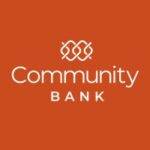
- Last updated April 2024
Best CD Accounts Of April 2024
Compare the best CD accounts
✓ Predictable returns
✓ Highest APYs
✓ Low-risk
Community Feedback
Product Features
Community Feedback
Product Features
Community Feedback
Product Features
Community Feedback
Product Features
Community Feedback
Product Features
Why Should You Open A CD Account?
Opening a Certificate of Deposit (CD) account can be beneficial for several reasons. Firstly, CDs offer a fixed interest rate, which means you know exactly how much you will earn over the term of the CD. This predictability can be a significant advantage over other investments that may fluctuate in value. Secondly, CDs often provide higher returns than traditional savings accounts. Banks typically reward CD account holders with a higher yield in exchange for keeping their money in the account for a set term.
Moreover, CDs are considered one of the safest savings options. Like checking and savings accounts at federally insured banks, CD accounts are typically insured by the Federal Deposit Insurance Corporation (FDIC) up to the allowable limits. This means that even if the bank fails, your investment is protected. Lastly, many banks offer various CD options, including those that allow you to receive the earned interest more frequently or invest in CDs of increasing lengths. This flexibility can help you tailor your CD account to your financial needs and goals.
Compare Top CD Accounts



Top 5 Benefits Of A CD Account
- Safety and Security: CDs are generally considered a safe investment because they are insured by the Federal Deposit Insurance Corporation (FDIC) up to the allowable limits. This means that your CD savings are still protected even if the bank fails.
- Higher Interest Rates: CDs typically offer higher interest rates than traditional savings accounts. This is because you agree to keep your money in the CD for a set period, which makes your deposit more valuable to banks.
- Guaranteed Returns: You receive a fixed interest rate for a specific period with a CD. This means there's virtually no guesswork about how much return you'll get for your money. The returns are predictable and guaranteed, making CDs a reliable savings option.
- CD Laddering: This strategy involves buying multiple CDs with varying maturity terms and interest rates. This approach creates flexibility since CDs can mature on a rolling schedule, and you're less at risk of missing out on higher rates over time. It also allows you to access parts of your money at regular intervals.
- Useful for Specific Savings Goals: CDs can be particularly useful for short or medium-term savings goals. For instance, if you're saving for a specific purpose that is a few years away, you can put your funds in a CD that will mature right in time. This allows you to earn interest on your savings while ensuring the money will be available when you need it
1. Valley Direct

Valley Direct is an online division of Valley Bank that offers a high-yield online savings account and competitive CDs. It provides a hassle-free, smarter, and easier way for customers to reach their savings goals, with the added benefit of being FDIC-insured.
Pros
- Low minimum deposit ($500)
- Competitive CD APY
- No monthly maintenance fees, insufficient funds fees or overdraft fees
Cons
- High minimum deposit for CDs
- No debit card or checks with the high-yield savings account
2. Bread Savings

Bread Savings is an online-only bank that offers a high-yield savings account and certificates of deposit (CDs). The bank does not offer checking accounts, ATM cards, or debit cards. You must transfer funds to a linked external bank account to access your money.
Pros
- Competitive APY on savings and CDs
- Minimal fees
- High checking account APY
Cons
- Requirements must be met to earn strong checking rate
- Other products (Savings & CDs) are not as competitive
SmartWealthTrends is dedicated to bringing you the latest in finance. With in-depth reviews, comprehensive comparisons, and easy-to-follow guides, you'll be prepared for whatever is thrown at you!
Advertiser Disclosure: SmartWealthTrends has partnered with QuinStreet for our coverage of banking products. SmartWealthTrends and QuinStreet may receive a commission from banks. Some or all of the banking offers that appear on SmartWealthTrends are from advertisers. Compensation may impact how and where card products appear but does not affect our editors’ opinions or evaluations. SmartWealthTrends does not include all card companies or all available card offers.
Editorial Disclosure: Opinions, reviews, analyses & recommendations are the author’s alone, and have not been reviewed, endorsed or approved by any of these entities.

